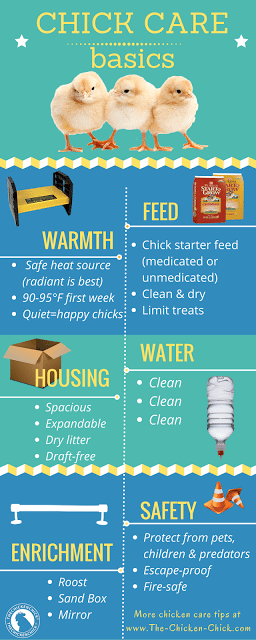
A Comprehensive Guide to Nurturing Baby Chicks: A Journey from Hatching to Maturity
Introduction
The arrival of baby chicks is a delightful experience, marking the beginning of a rewarding journey. These fragile creatures require meticulous care and attention to thrive and reach their full potential. This comprehensive guide will provide you with all the essential knowledge and practical tips to ensure the well-being of your baby chicks, from hatching to maturity.
Preparation: Before the Chicks Arrive
- Brooder: Prepare a brooder, a warm and enclosed space where the chicks will reside for the first few weeks. Line the brooder with absorbent bedding, such as wood shavings or shredded paper.
- Heat Source: Provide a heat source, such as a heat lamp or brooder plate, to maintain a temperature of 95-100°F (35-38°C) during the first week. Gradually reduce the temperature by 5°F (3°C) each week until room temperature is reached.
- Feeder and Waterer: Set up a feeder and waterer inside the brooder. Choose a feeder that prevents the chicks from scratching out the feed and a waterer that is shallow and stable.
- Feed: Purchase a high-quality chick starter feed, which is formulated to meet the nutritional needs of baby chicks.
Hatching and Initial Care
- Hatching: Once the chicks have hatched, allow them to dry completely before handling them.
- Handling: Handle the chicks gently, supporting their bodies and avoiding squeezing them.
- Dipping: Dip the chicks’ beaks into clean water to encourage them to drink.
- Placement: Place the chicks in the prepared brooder and provide them with access to food and water.
Daily Care and Management
- Feeding: Feed the chicks a chick starter feed ad libitum (as much as they want). Ensure the feed is fresh and free of mold.
- Watering: Provide clean, fresh water at all times. Change the water daily to prevent contamination.
- Cleaning: Clean the brooder and bedding regularly to maintain hygiene and prevent disease.
- Temperature: Monitor the temperature inside the brooder and adjust the heat source accordingly.
- Observation: Observe the chicks daily for any signs of illness or distress.
Growth and Development
- Feathering: Chicks will start to develop feathers within a few days of hatching.
- Growth Rate: Chicks grow rapidly during the first few weeks. Provide ample space and nutrition to support their growth.
- Socialization: Chicks are social creatures. Allow them to interact with each other and with you to promote their well-being.
Transition to Outdoor Living
- Age: Chicks can be moved outdoors once they are fully feathered and have developed a tolerance to cooler temperatures, typically around 6-8 weeks of age.
- Gradual Introduction: Gradually introduce the chicks to the outdoors by allowing them to spend short periods of time in a protected area.
- Shelter: Provide a secure shelter in the outdoor enclosure to protect the chicks from predators and inclement weather.
- Feed and Water: Continue to provide a chick starter feed and fresh water outdoors.
Health and Disease Prevention
- Vaccination: Consult with a veterinarian about appropriate vaccinations to protect the chicks from common diseases.
- Parasite Control: Regularly check the chicks for parasites, such as mites or worms, and treat them accordingly.
- Isolation: Isolate any sick chicks immediately to prevent the spread of disease.
- Hygiene: Maintain a clean and sanitary environment to minimize the risk of infection.
Common Health Issues
- Pasty Butt: A condition where fecal matter sticks to the chick’s vent, causing discomfort and potentially leading to infection.
- Coccidiosis: A parasitic infection that can cause diarrhea and dehydration.
- Marek’s Disease: A viral infection that can affect the nervous system and organs.
- Respiratory Infections: Chicks are susceptible to respiratory infections, such as bronchitis and pneumonia.
Additional Tips
- Provide Enrichment: Offer toys and activities to stimulate the chicks’ physical and mental development.
- Monitor Water Consumption: Chicks need access to plenty of fresh water. Monitor their water intake to ensure they are staying hydrated.
- Avoid Overcrowding: Provide adequate space for the chicks to move around and avoid overcrowding, which can lead to stress and disease.
- Be Patient and Observant: Caring for baby chicks requires patience and observation. Pay attention to their behavior and appearance to identify any potential health issues or concerns.
Conclusion
Nurturing baby chicks is a rewarding experience that requires dedication and attention to detail. By following the comprehensive guidelines outlined in this article, you can ensure the well-being of your chicks, fostering their growth and development into healthy and thriving adults. Remember to consult with a veterinarian for professional advice and support throughout the journey.
